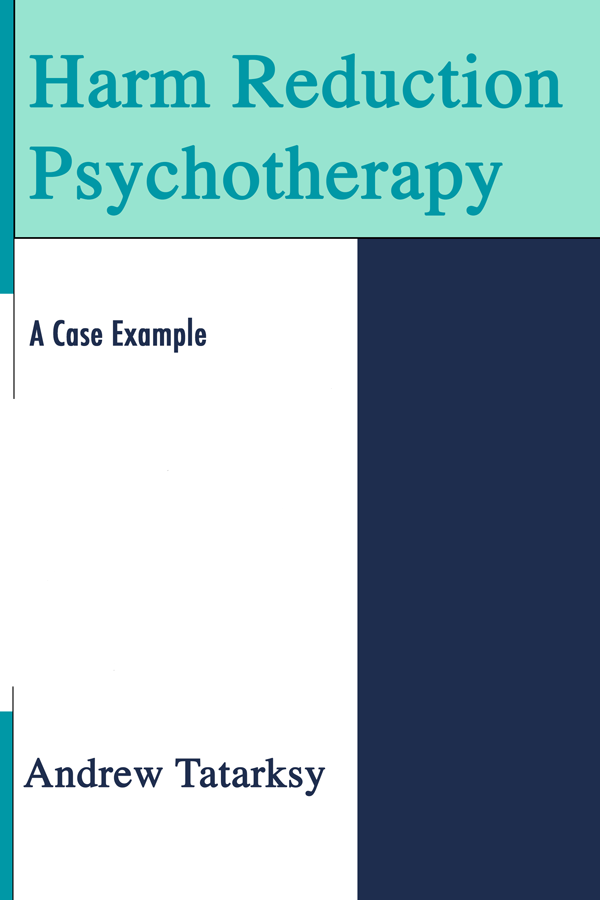
Harm Reduction Psychotherapy
Publisher: Jason Aronson, Inc.
Please provide your name and email to get free downloads.
Downloaded 9193 times since
The approach described and illustrated here is an example of harm reduction psychotherapy for active substance users that is based on an integration of psychodynamic and social learning theories in its understanding of substance use problems and in the combining of cognitive and behavioral self-management strategies with psychodynamic interventions in the treatment process
This ebook is an excerpt from Harm Reduction Psychotherapy © 2002 Jason Aronson, Inc. used by arrangement with the publisher.
Do you love reading free e-books as much as we love publishing them? Keep the dream alive. Chip in a few bucks to help keep the site running.


5 comments on “Harm Reduction Psychotherapy”
Nigeria:
This has helped me, and it’s still helping me advance my knowledge of teaching and practice of clinical psychology in the University of Jos, Plateau State, Nigeria. Words cannot express my sincere appreciation to the International Psychotherapy Institute. Thank you.
Romania:
As all the e books on this site, this one is a helpful challenge for any psychotherapist. Thank you for all the effort and work from IPI; it’s extremely useful for healthcare professionals.
Timor Leste:
This is a very good book
South Africa:
I am an Addiction Counsellor, as well as trainer, who educates extensively in the field of substance use disorders and motivational interviewing for a treatment centre and Addiction Education provider in South Africa.
While I have certainly become increasingly familiar with the tenets of harm reduction through my studies, and local NGO’s working among heroin users, I have to admit I have always viewed this approach as a poor cousin to the more desirable abstinence approach and in harsher moments have even bewailed the approach, as yet another sign of the relentless slide into increasing social and moral decline.
I saw harm reduction as the bitter pill of reality we had to swallow in dealing with intractable problems of addiction to substances like methamphetamine and especially heroine addiction. And yet, a small yet persistent voice, has always demanded my attention when I teach the current “gospel” about addiction: i.e. it is a disease; terminal, primary and chronic. Basically incurable…and needing to be managed for life. Like diabetes. How I hate that comparison! I am one of those people that simply cannot embrace such a verdict, even though my father died an “alcoholic” . It was also my father who managed to train a wheelchair bound and paralyzed tennis star back to full mobility, so from him and my mother (who also drank excessively in later years from loneliness) I have learnt not to accept what the world says, just because the world says it. And while in many instances the reality seems to bear out the disease model paradigm, the question must be asked if this is not at least partly due to our expectations and our inappropriate approach.
Another small voice speaks to me when I see people over the years learning to “moderate and control” their use of alcohol, thanks to their own ability to learn from and grow in the day to day centre of life. They grow in self-esteem, learn to be more assertive and gain the ability to express themselves and manage to change even though looking at them ten years ago they would have easily been diagnosed as someone with an alcohol use disorder. Reality has provided me with various uncomfortable examples that fly in the face of the “truths” touted by the disease model.
Not only does most addiction treatment preach the abstinence model but of course so does the AA programme, and being a grateful member of Al-Anon, it is again with some dis-ease that I have to question the out and out adamantine approach and belief relayed by AA and that is “once a pickle, you can never be a cucumber”. Which contradicts the whole idea of ever being able to revert back to social recreational or controlled use of a substance, or alcohol in this instance. Very tricky indeed.
My emotional response to reading this book has been one of immense relief. That you have proven that this is indeed possible. That there is another way- the middle way. The way that is person or client- centred. Being a passionate Motivational interviewing practitioner, this is certainly in alignment with my beliefs and experiences with treating clients with ultimate regard, respecting their autonomy and respecting their expressed goals. It has opened up a possible approach that I have already embarked on with my own clients, but which has now been validated.
I now see harm reduction as a more desirable outcome, as it is more effective (retention is more likely and therefore more can be done for the client), more sustainable (of lasting effect)and ironically, since this is not what I originally associated with harm reduction; possibly more healing. What you are saying about addiction then is that it is not primary, it does not have to be chronic and it can be terminated! Thank you.
Nigeria:
This has help me in practical aspect I work with Kapwa wholeness foundation NGO that operate as help center for drug dependency.